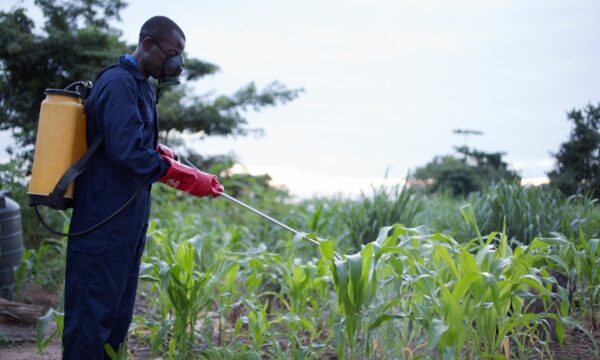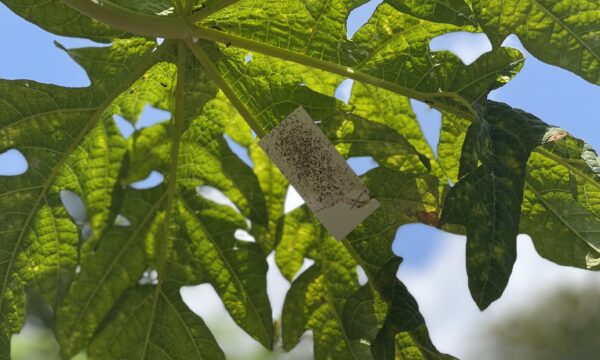by Kimani Chege and Abigail Rumsey
Plant clinics have been running in Kenya since 2010. There are currently 35 clinics throughout Kenya, to which farmers can bring their crops and receive a diagnosis of the pest or disease that is causing them problems. These clinics are organized and run by the Ministry of Agriculture extension services with support from the Kenya Agricultural Research Institute (KARI), Kenya Plant Health Inspectorate Services (KEPHIS) and CABI. While plant clinics are mainly organized in marketplaces in Kenyan towns, they mostly interact with rural populations keen to get diagnosis of their crops and better their production. However, this October, for the first time, plant doctors had an interaction with urban farmers during the Nairobi International Trade Fair.
The Nairobi International Trade Fair, run by the Agricultural Society of Kenya, is a popular annual event which draws farmers and exhibitors across Kenya as well as neighboring countries. According to James Wanjohi, the director of extension services at the Ministry of Agriculture, the Nairobi International Trade Fair provides the organizers to target a big group of farmers within a short period. He notes that, although there has been the presence of rural farmers coming from across the country, there is a rise in queries from urban and peri-urban farmers. Wanjohi notes that the success of the plant clinics in the initial 35 pilot schemes will soon be expanded especially to irrigation schemes in Central and Western Kenya. “When you have a clinic at an irrigation scheme, you will be able to serve many farmers especially in horticulture. We will have a single point where farmers can learn from example on the quality required for horticulture and at the same time know pests and diseases affecting these crops and means and ways of preventing them,” added Wanjohi.
The Plantwise plant clinic exhibition stand was a popular stop for farmers and students as they sought remedies and diagnosis of the various problems they encounter during farming. Elizabeth Njoroge, a plant doctor and an extension worker based in Kikuyu who managed the clinic at the Nairobi show noted that the issues raised by urban farmers centered around crops mainly in greenhouses like strawberries, lettuce, capsicum and tomatoes. She also noted that rural farmers mainly sought advice on improving their maize, mango and potato crops.
Susan Ogoma came all the way from the coastal town of Malindi. She was concerned about the use of chemicals to contain some grasses that were affecting the yield of her passion and watermelon crop.
Ken Kamithi, a greenhouse farmer in Kiambu sought ways to contain nematode as well as whitefly in his Capsicum plant. Mutanu Mwenda, from Kitui, came to the clinic to find out more about how to increase yields and contain various pests in her strawberries plantation.
Over the week that the trade fair was running, the Plantwise stand served over 200,000 farmers, each with their own unique farming challenges. It is hoped that the trade fair plant clinic raised farmers’ awareness of the diagnostic services available to them, and that attendance at regional plant clinics will continue to increase.
2 Comments
Leave a Reply
Related News & Blogs
How do pest risk registers address the spread of plant pests in Africa?
Pest risk registers can help to solve problems in agriculture, addressing the growing global threat of plant pests. Moreover, changing weather patterns, led by rising temperatures, are causing them to reproduce faster and expand into new regions. In ad…
10 July 2025







[…] and Trinidad and Tobago. To read more about plant clinics in Kenya you can visit this blog: ‘Plantwise Plant Clinic at the Nairobi International Trade Fair’ by Kimani Chege and Abigail Rumsey. You can also visit this blog to watch a video of a plant […]
This was a wonderful endeavour, covering 200,000 farmers in one week that the trade fair runs is so encouraging. Thanx for having increased the plant clinics from the then 35 to now 92. Committed to assist farmers loose less!